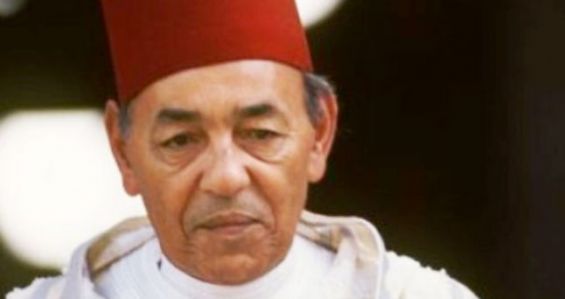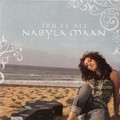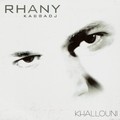Moroccans will celebrate Eid al-Adha on Friday, the sacrifice feast that commemorates the strength of Ibrahim’s faith, the prophet who agreed to sacrifice his own son Ishmael as an act of obedience to God’s command. Before sacrificing his son, the latter was replaced by a sheep which will serve later as one of the major components of Eid al-Adha. Since then, Muslims around the world have taken the habit of slaughtering each year one of the four : a six-month-old sheep, a two-year-old goat, a two-year-old cattle or a five-year-old camel.
1963 and the consequences of the Sand War
In Morocco, announcing the first day of Dhu al-Hijjah and therefore Eid al-Adha is one of the duties of the Ministry of Habous and Islamic Affairs. Traditionally, Moroccans sacrifice their sheep after the Eid prayer, but especially after the sacrifice of the King, the Commander of Believers. However, several senior Moroccans remember the three times when late king Hassan II ordered to call off the sacrifice. The reasons provided by the sovereign were sometimes related to the drought that had struck the kingdom on multiple occasions and to the herd.

In 1963, the colonial frontier between Morocco and Algeria led the two neighboring countries to start a war, known as the «Sand War». The armed conflict began officially on the 14th of October 1963 when the Royal Moroccan Army (FAR) fought against the Algerian forces and took over Hassi Beida and Tinjoub. On September 25th and with intense fighting, the Moroccan army reached the oasis towns of Tindouf and Figuig. It was later in January 1969 that Morocco and Algeria signed the Treaty of Friendship in Ifrane.
But in 1963, and after the two countries were weakened by the war, the young monarch asked Moroccans not to celebrate Eid al-Adha. Based on a royal decision, Moroccans had to obey without asking too many questions. The country’s economy was damaged by the war and the number of animals in the herd could not satisfy the demand of all Moroccans.
1981…The «El-Asnam Curse»
In 1981, the reason invoked was the failure of the 1978-1980 «Triennial Plan», aimed at reducing imports and improving internal and external public finances and the country’s situation through the 1981-1985 five-year Plan, known as the «Economic and Social Recovery Plan». Morocco was indeed struck by the drought.
A significant amount of animals were found dead, mainly due to climatic conditions. King Hassan II once again asked Moroccans not to celebrate the day of Eid al-Adha, making it the second time that they had to spend the feast without sacrificing an animal.
Surprisingly in many parts of the Kingdom, some Moroccans had sacrificed their sheep and discreetly disobeyed the royal instructions. The day of Eid al-Adha was marked by some incidents. In the town of Guelmima, in south-east Morocco, citizens slaughtered dogs and hung their dead bodies by the doors of the city’s palace protesting against the decision. They wrote «Hassan celebrates the Eid with a sheep and we get to eat dogs», local villagers reported.
The incident was not ignored by the authorities, when, four years later, Said El Harraf, Imam of Tidaghoust mosque (Province of Errachidia) and his son were arrested. According to accounts, the suspects got their teeth snatched before they admitted their deeds. Said El Harraf was subsequently sprayed with alcohol and burnt alive, according to the Equity and Reconciliation Commission (IER).
Al Massae, a Moroccan daily newspaper, links calling off Eid al-Adha on 1981 to the events that occurred in 1980 in Algeria. On October the 10th 1980, an earthquake hit El-Asnam, a town near Oran, Algeria where 2,633 people were killed. The newspaper said that King Hassan II galvanized Moroccans into «helping their Algerian brothers» by donating «Sheep skins». Chadli Benjdid, the Algerian president back then considered the King’s declaration an «insult and provocation for Algerians».
The 1996 drought
The most recent ban was declared in 1996. In March of the same year, Moroccans were informed through King Hassan II's speech read by Abdelkebir Alaoui Mdaghri, the Minister of Habous and Islamic Affairs, that Eid al-Adha would not be celebrated in Morocco. The young minister explained that 1995 was declared a catastrophic year for the national agriculture. «Eid al-Adha, although considered a Sunna Mouakkada, cannot be celebrated in these difficult conditions, otherwise the feast will cause unavoidable damage», said Abdekebir Alaoui Mdaghri.
Eid al-Adha in Morocco is marked by several anecdotes and events. Some of them are rather amusing and others sad, these stories are told today with a lot of irony. Al Akhbar, a daily newspaper, recalled that in 1945, Moroccans spent the feast eating meat without bread. During that period, Morocco was suffering from a famine which broke off on 1941 because, the kingdom was supplying the French at the war time.





 chargement...
chargement...












